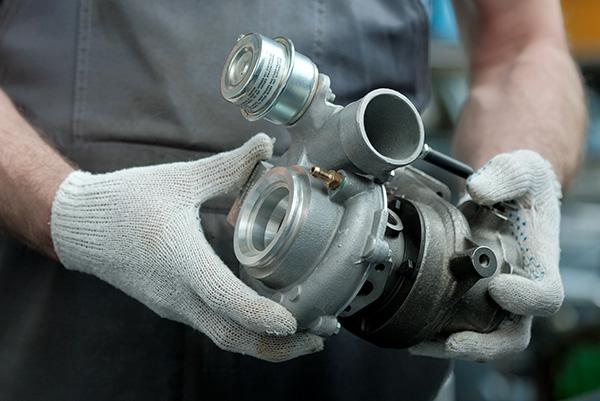
A turbocharged engine delivers extra power, better efficiency, and an overall smoother drive. But like any high-performance component, a turbocharger is under constant stress and can develop issues over time. If your vehicle feels sluggish, makes unusual noises, or consumes more fuel than usual, your turbo might be trying to tell you something. Catching the warning signs early can prevent expensive repairs and keep your engine running at its best.
How Does a Turbocharger Work
A turbocharger is designed to increase engine power without adding extra weight. It does this by using exhaust gases to spin a turbine, which forces additional air into the engine. More air means more fuel can be burned, resulting in greater horsepower and better fuel efficiency. However, since a turbo operates under extreme heat and pressure, regular maintenance is key to keeping it in peak condition.
Signs Your Turbocharger May Be Failing
Loss of Power and Slow Acceleration
If your turbo isn’t working properly, you’ll likely feel it when you press the gas pedal. A failing turbo can cause sluggish acceleration, making it harder to reach highway speeds or climb hills. The engine may still run, but without the extra boost, it won’t perform as expected.
Whining or Whistling Noises
A healthy turbo runs quietly, but if you start hearing a high-pitched whistling or whining sound, it could indicate a leak in the turbo system. In more severe cases, a rattling or grinding noise may suggest internal damage to the turbine or bearings.
Excessive Exhaust Smoke
An increase in exhaust smoke—especially if it’s blue, gray, or black—could signal a turbo problem. Blue smoke often means oil is leaking into the combustion chamber, while black smoke may indicate improper air-to-fuel ratios caused by a failing turbo.
Increased Oil Consumption
Turbochargers rely on oil for lubrication, and oil leaks can lead to excessive consumption. If you find yourself topping off your oil more often than usual, a failing turbo seal or worn bearings could be the reason.
Check Engine Light
Modern vehicles have sensors that monitor turbo performance. If the system detects low boost pressure, excessive heat, or irregular airflow, it may trigger the check engine light. A diagnostic scan can help pinpoint whether the turbocharger is the cause.
What Causes Turbocharger Issues
Turbochargers are built to last, but certain driving habits and maintenance issues can lead to premature failure:
- Oil Contamination – Dirty or low-quality oil can clog the turbo’s bearings, leading to overheating and failure.
- Clogged Air Filters – A dirty air filter restricts airflow, forcing the turbo to work harder than necessary.
- Excessive Heat – Hard acceleration, towing, or prolonged high-speed driving can overheat the turbo, causing internal damage.
- Aggressive Driving on a Cold Engine – Turbochargers need proper lubrication before operating at high speeds. Revving a cold engine can lead to premature wear.
How to Extend the Life of Your Turbocharger
Stick to a regular oil change schedule with high-quality, manufacturer-recommended oil.
Allow the engine to warm up before accelerating aggressively and let it cool down before shutting it off.
Use clean air filters to prevent dust and debris from damaging the turbo.
Avoid excessive throttle use in stop-and-go traffic to reduce strain on the turbo system.
When to Get Your Turbo Inspected
If your car isn’t delivering the power it used to or you’re noticing any of the warning signs above, it’s best to have your turbo inspected before the problem worsens. The expert technicians at Future Auto Service in Burbank, CA, can help diagnose and repair turbocharged vehicles, ensuring your engine stays efficient and reliable.